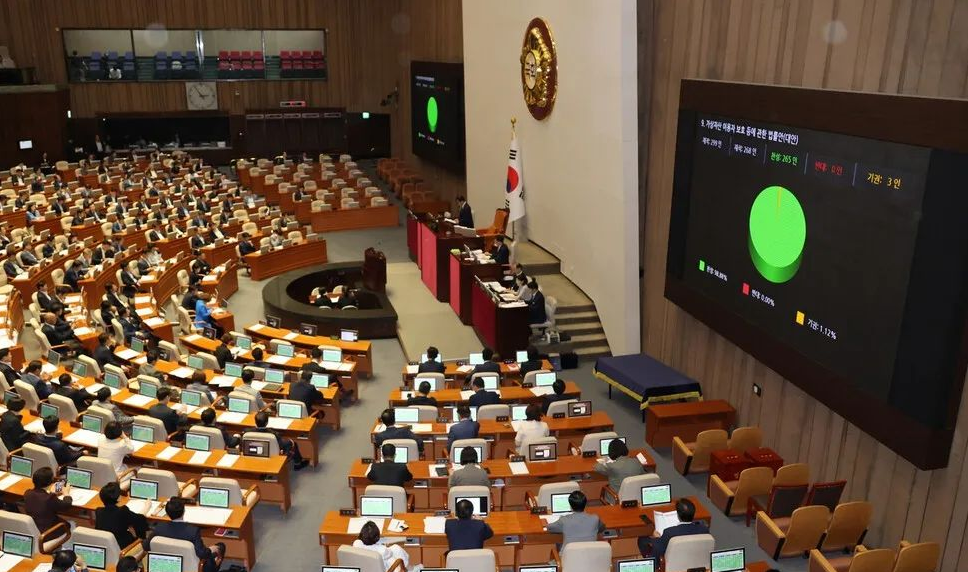Bitfinex: New York State Attorney General can't win
The reason why Bitfinex is so emboldened is that they found that the New York State Attorney General's Office has not sufficiently prosecuted them under the Martin Act.

In 2009, Merrill Lynch mobilized client funds to make up for the shortfall caused by its trading activities, but at the time the New York State Attorney General's Office did not use the Martin Act to bind Merrill Lynch.
Now, the same thing happened to Bitfinex. They were found to have “misappropriated” Tether (USDT) $850 million to make up for the shortfall in funding. The result was a lawsuit filed by the New York State Attorney General’s Office, and the confrontation between the two sides was escalating. .
- Market Analysis: Can the bulls withstand the impact of the turmoil in the capital market?
- Circle the focus, read the new LEO white paper from Bitfinex
- Can low buy and sell high be achieved?
One is the industry's well-known cryptocurrency exchange, and the other is the highest legal regulator in New York State. They obviously don't want to make any concessions to each other.
Earlier, the New York State Attorney General's Office filed a lawsuit in the state court, asking Bitfinex to disclose more information in response to its $850 million funding gap. However, Bitfinex does not seem to care about the complaints of regulators, and its parent company iFinex has even launched a $1 billion token sales project.
Obviously, this series of practices has angered the New York State Attorney General's Office.
In the latest letter from the two parties to the New York State Supreme Court, the New York State Attorney General’s Office and Bitfinex did not agree with each other. On the surface, they all responded to the documents issued before, but the response was still The same "recipe", the same "taste", and even the caliber and wording did not change much.
However, Bitfinex's attitude seems to be tougher this time. They not only continue to deny any misconduct, but also “snap a blow”, claiming that the New York State Attorney General's Office has no legal basis to further investigate their business operations, not to unilaterally. Cut off the loan amount they applied to Tether.
On the other hand, the Office of the Attorney General of the State of New York is equally informative that his investigation is flawless and proves to the court why it is necessary to cut off Bitfinex's loan. In addition, the Office of the Attorney General of the State of New York requested continued investigations into the case and also provided new evidence to prove the legitimacy of its actions.
Is it necessary to maintain the status quo?
Although the Office of the Attorney General of the State of New York is justified in the court, according to their latest submission, the content is basically not much different from the document first submitted to the court. The regulator claimed that the purpose of ordering Bitfinex to stop the loan was "Protect the public." According to them, Bitfinex and its affiliates, the stable currency USDT issuer Tether, reached an internal transaction, which resulted in a loan amount of up to 900 million US dollars to make up for the $850 million funding gap that Bitfinex was stranded at payment processor Crypto Capital. The court allowed Bitfinex to continue to receive loans from Tether, and Bitfinex trading platform users and Tether (USDT) holders would be at risk.
The question is, why does the New York State Attorney General's Office feel that Bitfinex is getting risk from Tether?
In fact, the New York State Attorney General’s Office believes that if Bitfinex is allowed to continue to borrow from Tether’s reserves (it is said that Bitfinex has taken out at least $750 million), then there will be a small amount of money for USDT holders. Endorsement of funds. If there is something wrong with Bitfinex that can't guarantee the security of the funds, or lose the ability to repay, then the funds will not be recovered, and eventually will cause a large number of users to suffer losses.
Taking into account the series of questions raised by the New York State Attorney General's Office, New York State Supreme Court Manhattan Court Judge Debra James ordered that Bitfinex must provide the relevant documents for the investigation, including New York State, as required by the New York State Attorney General's Office. The Office of the Attorney General began with the relevant information that Bitfinex wanted from November last year. Not only that, but Judge Debra James also issued another, more important order, ordering Banfinex and Tether to ban the US dollar reserve held by Tether for loans, credit, mortgages or all claims.
However, Bitfinex does not agree with the judge's ruling.
In fact, in Bitfinex's view, if the ruling is formally implemented, it will bring more risks to Bitfinex and Tether users, and the risk index will even be higher than the subsequent business risk of the exchange – especially forbidden by Judge Debra James. Bitfinex is very upset about getting Tether's reserves, as this is likely to have a huge impact on Bitfinex's existing business.
Therefore, in its latest filing with the Supreme Court of New York, Bitfinex specifically requested that the request of the New York State Attorney General's Office be revoked or that the New York State Attorney General's Office be amended.
However, the New York State Attorney General’s Office does not want to let Bitfinex go easy, and denied that current enforcement actions will have an impact on the Bitfinex business because they believe that current law enforcement activities do not prevent existing users from trading on the Bitfinex trading platform, and Deposit and withdrawal activities.
Not only that, but the New York State Attorney General’s Office has provided more new evidence to the Supreme Court of New York, proving that it is necessary to conduct further in-depth investigations of Bitfinex. These evidences include:
1. Recently, two suspects, Reginald Fowle r and Ravid Yosef, have pleaded guilty, acknowledging the illegal provision of “shadow banking” services for cryptocurrency exchanges, and Crypto Capital, a bank payment transaction provider that caused Bitfinex funding gaps, may be involved in their criminal activities. .
2. Bitfinex mentioned in its own submission that Tether borrowed $675 million in reserves from last year to cover part of its $850 million loss. While the New York State Attorney General's Office issued a subpoena to investigate it, Bitfinex disclosed the amount of the loan to the New York State Attorney General's Office at $625 million, which is $50 million less than the amount disclosed.
In the latest letter sent to the Supreme Court of New York, the Office of the Attorney General of the State of New York stated that they had previously hoped to obtain more investigation-related documents related to the Bitfinex exchange, but could not obtain it. Together with the above evidence, it now makes people more suspicious of this. Inferior exchanges, so the investigation should not be shelved.
“Importantly, the Office of the Attorney General's Office of the State of New York has repeatedly requested the Bitfinex Exchange to disclose relevant documents, but has never received documents and information that even reveals a bit of Bitfinex liquidity issues and customer exposures. Bitfinex should have Assist in the investigation and inform the New York State Attorney General's Office and the court of their current real financial situation."
Bitfinex: New York State Attorney General can't win
In fact, Bitfinex did not waver in the fight against the New York State Attorney General's Office.
In response to the New York State Attorney General's Office response, Bitfinex again requested the court to revoke or amend the existing ban in the latest response letter, although the New York State Attorney General's Office and Judge Debra James believe that the current ban is “appropriate and appropriate” .
Bitfinex's attitude seems to be very tough and rebuts the views of the New York State Attorney General's Office, who believe that the New York State Attorney General's Office failed to provide sufficient evidence to prove the legality of the previous ban, and the New York State Attorney General's Office cited The legal basis – the "Martin Act" does not have any jurisdiction over Bitfinex and Tether.
Bitfinex's legal counsel wrote in the document:
“The New York State Attorney General’s Office has not even tried to explain why the USDT is following the Martin Act. In fact, the bill is mainly applied to securities or commodities… so far, there is no power base in the field of regulating cryptocurrencies. The New York State Attorney General’s Office does not have the power to issue a fierce drug such as a preliminary ban, and should not order that the parties (ie, Bitfinex) submit a large number of documents to meet their investigation needs."
It's worth noting that Bitfinex is so emboldened that they found that the New York State Attorney General's Office has not adequately prosecuted them under the Martin Act, and their lawyers have clearly seized this and made a fuss.
In this regard, the New York State Attorney General's Office does not show weakness, they cited some past cases to prove that there have been similar regulatory precedents. However, this move was refuted by Bitfinex, claiming that the New York State Attorney General's Office used the "wrong" citation.
The New York State Attorney General's Office accused Bitfinex of withdrawing Tether's stable currency reserve to cover its own losses (the New York State Attorney General's Office is particularly concerned that the deal was not made public), which is in fact Bititx and Tether conspired to engage in fraudulent activities. For this allegation, Bitfinex also denied it in the documents submitted to the New York courts.
On the other hand, Bitfinex believes that the New York State Supreme Court has terminated the running $900 million loan line as “serious regulatory overstepping” and will not bring any benefits to the industry. And Bitfinex expects the move to "extremely disrupt, as it freezes more than $2 billion in Tether reserves and blocks any form of investment in the future."
However, Bitfinex did not answer the two major concerns of the New York State Attorney General's Office. One is that Crypto Capital and Bitfinex's funds may be involved in Fowler and Yoself's shadow banking case, and the other is that Bitfinex claims to borrow 675 million from Tether. The US dollar had previously told the New York State Attorney General’s Office that it had received $625 million.
Now, the dispute between Bitfinex and the Office of the Attorney General of the State of New York is in full swing, and this "battle" seems to have just begun, and the final result will be a victory for one side? Still losing both? Or do the two sides shake hands and say? Let us wait and see what happens.
Original author: Colin Harper
Odaily Planet Daily Translator | Moni
This article was translated from Bitcoin Magazine ( https://bitcoinmagazine.com/articles/bitfinex-attorney-general-legal-sparring-continues-new-court-filings/) .
Please indicate the source if you reprint.
We will continue to update Blocking; if you have any questions or suggestions, please contact us!
Was this article helpful?
93 out of 132 found this helpful
Related articles
- Block reorganization, it’s like a play
- The currency lost 300 million, but the hacker is not the biggest winner.
- Demystifying Blockchain Funds Routines: Launching Projects to Promote Spoiled Coin Price
- How do mesh networks and cryptocurrencies eliminate the gap in rural broadband?
- Come on! Ethereum 2.0 beacon chain test network officially launched
- From the coin security to roll back the stolen BTC transaction, talk about how Bitcoin can ensure "unable to modify" from the code
- DEX is very hot, and DEX has loopholes, saying that "preemptive trading" is a disease.






